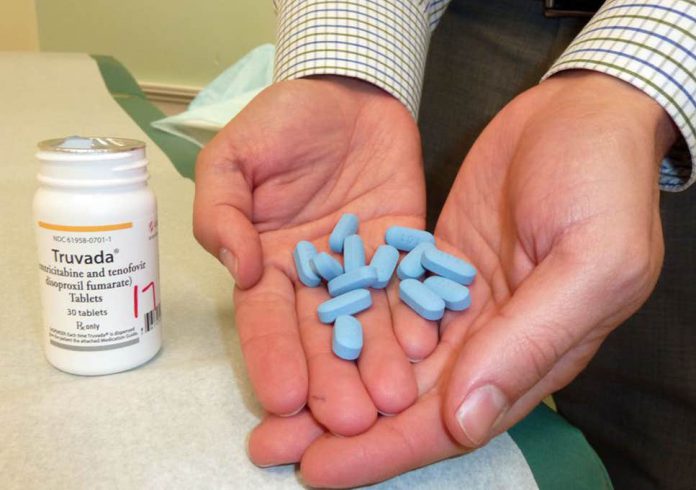On Tuesday, the Department of Health and Human Services (HHS) announced that the government will initiate a national HIV prevention program called “Ready, Set, PrEP” that will distribute free HIV pre-exposure prophylaxis (PrEP) medication to uninsured Americans who are at risk of acquiring the infection./
However, activists said that the new program does not go far enough.
HHS Secretary Alex Azar called the new program a “historic expansion of access to HIV prevention medication” and a “major step forward” in President Trump’s “Ending the HIV Epidemic” plan, which was announced earlier this year to reduce HIV transmission by 90 percent by 2030.
Azar said, “Thanks to Ready, Set, PrEP, thousands of Americans who are at risk for HIV will now be able to protect themselves and their communities.”
The CDC guidelines say men who indulge in sex with men must start with PrEP if they are known to have multiple risk factors, including being between 18 and 28 or having more than one partner. Also, the guidelines say that men having unprotected or condomless sex once in the past six months are called for automatic PrEP recommendation.
The HHS secretary noted that nearly 2 percent of the 1.3 million people in the United States, who might benefit from PrEP, are taking the medication.
The new program is part of the Gilead Sciences’ announcement of planning to donate 2.4 million bottles of Truvada every year. Announced in May, the donations may continue until 2030.
Ready, Set, PrEP program is a win for activists, especially those who are involved in the “PrEP4All Collaboration” and have been calling for a national program to end the HIV epidemic in the United States.
However, there is one glaring loophole to the program – it does not cover the blood work that is needed for PrEP. The activists called it a “barrier to PrEP access.”
According to the CDC guidelines, every sexually active PrEP user should undergo multiple blood tests every year to initiate and continue taking PrEP medication. The blood tests cost hundreds of dollars per visit, so it remains unclear how users would pay for them with no federal coverage.
Azar explained there are community health centers that could provide free blood tests but they are not an official part of the government’s plan.
PrEP4All Collaboration activities James Krellenstein wrote in an email, “Ready, Set, PrEP leaves much to be desired because it is poised to repeat the errors of Gilead’s own Medication Assistance Program, which donated free PrEP to qualified uninsured individuals, albeit on a much smaller scale.” “Similar to the HHS program, the Medication Assistance Program did not cover lab costs or associated clinical care,” Krellenstein continued. “As a result, people who access PrEP through the Medication Association Program were found to have a statistically significant lower rate of PrEP initiation and a longer time between PrEP prescription and initiation.”























